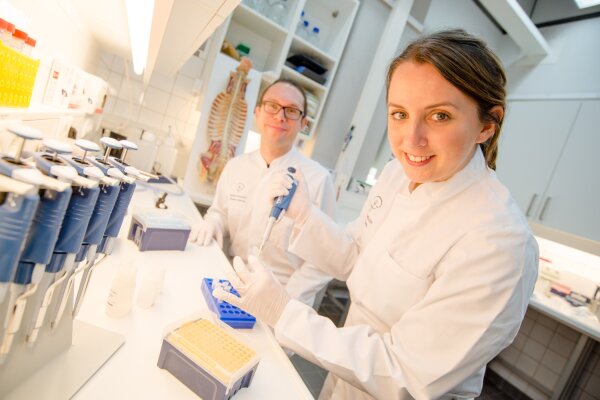2017-09-15

For some decades, single gene explanations have been the most popular models for the ontogenesis of handedness. However, molecular genetic studies revealed only few specific genes exerting small influences on the phenotype. Moreover, non-genetic factors like birth complications and maternal health problems during pregnancy have often been associated with an increased probability of left-handed offspring. Recent research indicates that asymmetric DNA methylation and gene expression in the human fetal CNS contribute to the development of hemispheric asymmetries. Here, a group of researchers from the Biopsychology and the Genetic Psychology Department analyzed DNA methylation in promoter regions of candidate genes for handedness in adult left- and right-handers to investigate whether epigenetic biomarkers of handedness can be identified in non-neuronal tissue. We found that DNA methylation patterns in genes asymmetrically expressed in the fetal CNS predicted handedness direction. Moreover, birth stress was correlated with DNA methylation in NEUROD6, a gene that is asymmetrically expressed in fetal brains. We propose that an integration of genes and environment is essential to fully comprehend the ontogenesis of handedness.

For some decades, single gene explanations have been the most popular models for the ontogenesis of handedness. However, molecular genetic studies revealed only few specific genes exerting small influences on the phenotype. Moreover, non-genetic factors like birth complications and maternal health problems during pregnancy have often been associated with an increased probability of left-handed offspring. Recent research indicates that asymmetric DNA methylation and gene expression in the human fetal CNS contribute to the development of hemispheric asymmetries. Here, a group of researchers from the Biopsychology and the Genetic Psychology Department analyzed DNA methylation in promoter regions of candidate genes for handedness in adult left- and right-handers to investigate whether epigenetic biomarkers of handedness can be identified in non-neuronal tissue. We found that DNA methylation patterns in genes asymmetrically expressed in the fetal CNS predicted handedness direction. Moreover, birth stress was correlated with DNA methylation in NEUROD6, a gene that is asymmetrically expressed in fetal brains. We propose that an integration of genes and environment is essential to fully comprehend the ontogenesis of handedness.